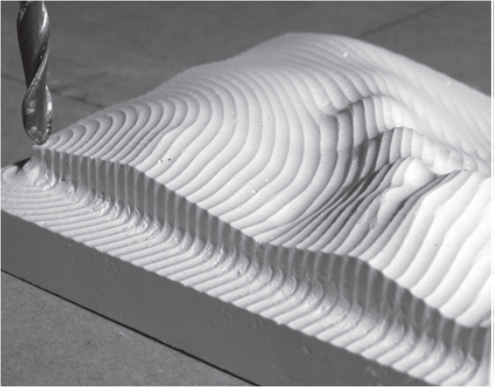
CAMWorks Drives Innovation in Industrial Design at Victoria University, Wellington
At Victoria University, students are encouraged to explore different patterning processes on virtual surfaces by using CAMWorks to machine the surface through techniques such as contour machining, zigzag, and flowline machining. All of these have a different visual effect on the surface that is being machined, and students have been known to create nearly 25 virtual models, varying the surface form by changing the machining details.
THE CLIENT
Company: Victoria University
Headquarters: Wellington, NZ
Industry: Educational
THE OBJECTIVE
At Victoria University, students are
encouraged to explore different patterning
processes on virtual surfaces by using
CAMWorks to machine the surface through
techniques such as contour machining, zigzag,
and flowline machining. All of these
have a different visual effect on the surface
that is being machined, and students have
been known to create nearly 25 virtual
models, varying the surface form by
changing the machining details.
THE SOLUTION
For the students, CAMWorks enables acute
visualization of the end results, a key
element for designers, while also allowing
them to get a sense of the vast possibilities of
machining. As Miller says “It prepares the
students (for the future), and it gives them a
bit more insight into what can happen in
industry. The point of using CAMWorks is not
just to show the students how virtual
modeling is done – this is done quite easily in
many three dimensional programs. What is
more difficult to explain is the relationship
between a virtual object and an object made
from CAM data. And I think that CAMWorks
is excellent for doing this and illustrating,
what the benefits could be from using
software such as CAMWorks. “
